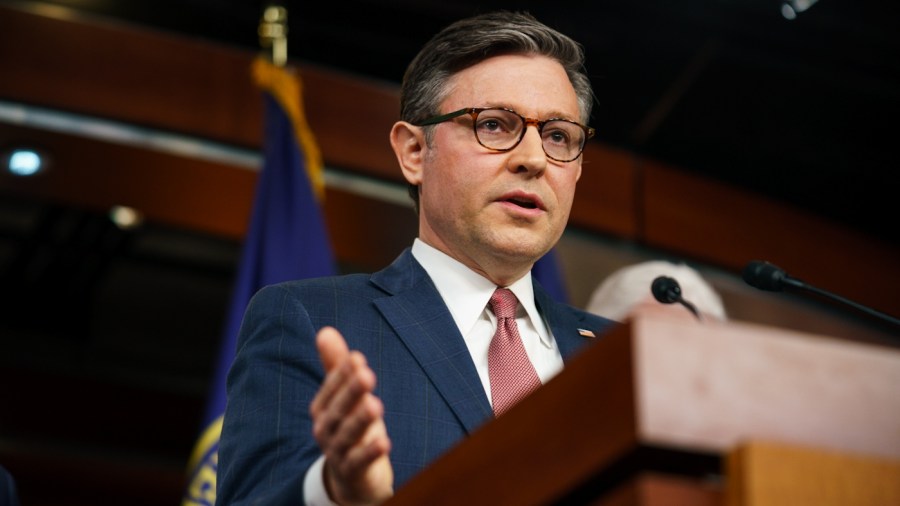Speaker Mike Johnson (R-La.) didn’t rule out a full-year stopgap to keep the government funded through the end of the fiscal year, as lawmakers struggle to strike a bipartisan deal.
Pressed by reporters on the chances of a full-year stopgap, Johnson left the door open on Wednesday afternoon.
“We’re trying to negotiate in good faith, but Democrats have sent over counter offers that are just simply not acceptable, and they know that, and so we’re looking at all options,” he said.
Reports emerged Wednesday afternoon that Johnson was pushing for a full-year funding stopgap, which could keep funding mostly at the levels hashed out in the last Congress, for the rest of fiscal 2025.
Top negotiators have been hopeful of striking a deal hashing out new funding levels for the remainder of fiscal 2025. But lawmakers have begun to acknowledge a stopgap of some length is likely necessary to keep the government funded beyond a mid-March shutdown deadline.
House Appropriations Chair Tom Cole (R-Okla.) said Wednesday that he thinks both sides had made progress in bipartisan funding talks following a meeting between the top Democratic and GOP negotiators in both chambers the night before.
“I think we’ve made progress, but I don’t think we’re where any of us would want to be,” he said, adding that he was seeking a meeting with Johnson.
Rep. Rosa DeLauro (D-Conn.) said Wednesday that talks aren’t dead. She said Democrats are still pressing for parity in nondefense and defense programs in funding talks, but she also added that “the other piece now, because of what we have seen, is that we have to have some kind of assurances that if we get a deal, that the deal stands.”
“I think that’s fair,” she said.
Her comments come as Democrats see the upcoming shutdown deadline as a way to counter sweeping efforts by President Trump and the Department of Government Efficiency (DOGE) to shrink the size of government and implement ambitious funding cuts.
Senate Minority Leader Chuck Schumer (D-N.Y.) also said this week that Democrats will push for language to unwind the recent measures by the Trump administration.
However, Cole told reporters on Wednesday that lawmakers are “not putting anything in bills that limit the president of the United States, and what he can and cannot do.”
“We’re not going to put stuff in legislation,” Cole said. “We do have to have a signature at the end of the day, so he is not irrelevant to the process.”
